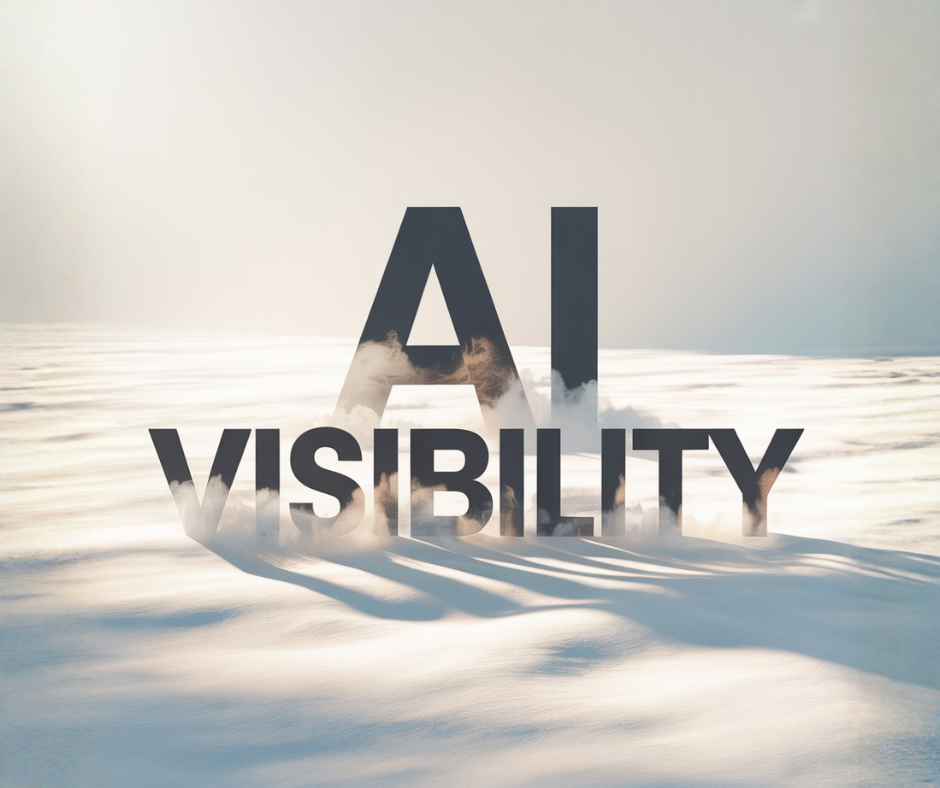Yo Ho Ho… A Pirate's Life for Me (With AI)
- Joy Morales
- Sep 19, 2024
- 7 min read

Ahoy, matey! Ever wondered what those swashbuckling pirates from centuries past could teach us about AI?
Well, shiver me timbers, because it turns out there are some surprising AI lessons from pirates that can help us navigate the choppy waters of technology innovation. Just like those seafaring scallywags adapted to survive in treacherous conditions, AI systems need to be nimble and quick-thinking to thrive in our rapidly changing world.
So, hoist the mainsail and let's explore how pirate tactics can inspire the next wave of AI innovation!
The Adaptability of Pirates and AI Systems
Pirates were masters of adaptability, able to change course at any moment when faced with new threats or opportunities. This same flexibility is crucial for AI systems to stay relevant and effective.
Modern AI is designed with adaptability in mind. This means creating systems that can learn and evolve based on new data and changing environments. These include:
· Implementing transfer learning techniques, which allow AI models to apply knowledge gained from one task to new, related tasks
· Using modular architectures that can be easily updated or expanded
· Designing systems with built-in feedback loops for continuous improvement
Real-world examples of adaptive AI are all around us. Self-driving cars constantly update their understanding of road conditions, using sensor data and machine learning algorithms to navigate complex environments. Recommendation engines refine their suggestions based on user behavior, employing collaborative filtering and content-based methods to provide personalized experiences. Even AI-powered virtual assistants learn from our speech patterns to provide more natural interactions, utilizing natural language processing and dialogue management systems.
Unconventional Problem-Solving: Pirate Tactics in AI
Pirates were notorious for their creative approaches to overcoming obstacles. They'd use unexpected strategies to outwit larger, better-equipped forces. This innovative thinking is exactly what's needed to push AI development forward.
By applying unconventional problem-solving techniques to AI, we can discover solutions that might not be inherently apparent through traditional methods. Some pirate-inspired approaches include:
· Combining seemingly unrelated concepts or technologies, such as merging computer vision with natural language processing
· Challenging assumptions about how AI should work, like exploring alternatives to gradient descent in neural network training
· Embracing constraints as catalysts for creativity, similar to developing efficient AI models for edge computing devices
One example of pirate-like innovation in AI is the development of generative adversarial networks (GANs). By pitting two AI systems against each other – a generator creating fake data and a discriminator trying to identify the fakes – researchers created a powerful new tool for generating realistic images and data. This adversarial approach has led to breakthroughs in image synthesis, style transfer, and even drug discovery.
Another innovative approach is using AI to fact-check AI, creating a system of checks and balances within the technology itself. This method helps ensure that AI systems continue to learn and evolve while maintaining accuracy and reliability.
However, like any good pirate crew, the need for strong leadership is evident. For AI, that means human guidance and oversight to ensure ethical development and deployment.
Decentralized Operations and AI Problem-Solving Techniques
Pirates operated in a decentralized manner, with each crew member having a specific role but also the autonomy to make decisions. This structure allowed for quick action and resilience in the face of setbacks.
Applying this decentralized approach to AI can lead to more robust and efficient systems. Some ways to incorporate decentralization in AI include:
· Developing distributed learning algorithms, such as federated learning, where models are trained across multiple decentralized devices
· Creating swarm intelligence systems that mimic the collective behavior of decentralized, self-organized systems in nature
· Implementing federated learning for privacy-preserving AI, allowing models to be trained on sensitive data without centralizing the information
The combination of blockchain technology and AI is a prime example of how decentralized systems can enhance AI. By leveraging the distributed nature of blockchain, AI models can be trained and deployed in a more secure and transparent manner. This approach can help address issues of data privacy, model accountability, and trust in AI systems.
Resource Optimization: Machine Learning Strategies from Piracy
Pirates were experts at making the most of limited resources. They had to carefully manage their supplies, crew, and ships to survive long voyages, battles, and in worse cases, being shipwrecked.
In the world of AI, resource optimization is equally important. As AI models grow larger and more complex, efficient use of computational power and data becomes critical. Some pirate-inspired strategies for optimizing AI resources include:
· Developing more efficient training algorithms, such as one-shot or few-shot learning techniques
· Using techniques like pruning and quantization to reduce model size without significantly impacting performance
· Implementing edge computing to distribute processing power and reduce latency in AI applications
These optimization techniques are particularly important for developing sustainable AI solutions that can run on devices with limited processing power or in environments with constrained resources. For example, TinyML (Tiny Machine Learning) is an emerging field that focuses on running machine learning models on microcontrollers and other small devices, enabling AI capabilities in IoT devices and other resource-constrained environments.
Disruptive AI Technologies: Learning from Pirate Innovation
Pirates were the ultimate disruptors of their time, challenging established trade routes and naval powers. In the same way, AI has the potential to upend traditional industries and ways of doing business, which is an advantage for small businesses.
By embracing the pirate spirit of disruption, we can push the boundaries of what's possible with AI. Some areas where AI is making waves include:
· Autonomous vehicles revolutionizing transportation, with potential impacts on urban planning, logistics, and personal mobility
· AI-powered drug discovery accelerating medical research, using machine learning to predict drug interactions and identify potential treatments
· Natural language processing transforming how we interact with technology, enabling more intuitive and accessible user interfaces
As we develop disruptive AI technologies, it's crucial to consider the ethical implications and potential societal impacts. Just as pirates operated outside the law, we must ensure that AI innovations don't cross ethical boundaries or cause unintended harm. This includes addressing issues such as algorithmic bias, data privacy, and the potential for job displacement.
Therefore, human intervention and involvement are more critical now and, in the future, than the naysayers want to admit. Ethical AI development requires ongoing dialogue between technologists, policymakers, and the public to ensure that AI benefits society as a whole.
How can pirate-inspired AI strategies be applied in business?
Small businesses can apply pirate-inspired AI strategies by fostering a culture of adaptability and innovation, encouraging unconventional problem-solving, and optimizing resources through efficient AI implementations. This could involve adopting AI systems that can quickly adapt to market changes, using AI to find creative solutions to business challenges, and implementing resource-efficient AI models to reduce costs.
Are there any ethical concerns with using pirate tactics in AI development?
While pirate-inspired strategies can drive innovation, it's important to apply them within ethical boundaries. Developers should ensure that AI systems respect privacy, avoid bias, and adhere to legal and moral standards. The goal is to emulate pirates' innovative spirit and adaptability, not their disregard for laws and ethics.
What small businesses could benefit most from pirate-inspired AI approaches?
Small businesses that face rapid change and uncertainty will benefit greatly from pirate-inspired AI approaches. This includes fields like finance, healthcare, cybersecurity, and logistics. These sectors require adaptive AI systems that can respond quickly to new challenges and opportunities, much like pirates adapted to changing conditions at sea. But all small businesses can benefit from an AI implementation. With the owner being the captain that guides the course of implementation and use. You are the true future of AI in the workplace.
How can individuals learn to think more like pirates when implementing AI?
To think more like pirates when implementing AI, individuals can practice lateral thinking, challenge assumptions, embrace constraints as opportunities for creativity, and stay agile in their approach. Engaging in collaborative problem-solving sessions, participating in networking groups, and studying historical examples of pirate strategies can also help foster this mindset. No, this does not mean watching Pirates of the Caribbean for the third time, but Johnny Depp was hilarious.
What are some potential drawbacks of applying pirate tactics to AI development?
Potential drawbacks include the risk of developing AI systems that are too unpredictable or difficult to control. There's also a danger of prioritizing innovation over safety and reliability. It's important to balance the pirate-inspired approach with rigorous testing, ethical considerations, and a focus on long-term sustainability and security in AI development.
Finding A Good Rudder
Your AI Wizards was created to help small businesses find the best solutions. Like us on Facebook, follow us on LinkedIn, and subscribe to us on YouTube to stay informed. We are here to make sure that small businesses have the best resources for a successful AI implementation, whether large or small.
"X" Marks the Spot
The future of AI is as vast and full of possibility as the open seas.
By learning from the swashbuckling strategies of pirates, we can navigate the challenges ahead and discover new horizons in artificial intelligence and innovation. However, it's important to remember that with great power comes great responsibility. As we chart our course through the AI landscape, we must balance the pirate-like spirit of innovation with ethical considerations and societal impact.
Just as pirates adapted to the ever-changing conditions of the high seas, AI must evolve to meet the complex challenges of our modern world. By fostering adaptability, embracing unconventional problem-solving, optimizing resources, and pushing the boundaries of what's possible, we can unlock the true potential of AI. Yet, we must always keep a steady hand on the wheel, ensuring that our AI creations serve the greater good and don't lead us into treacherous waters.
As we sail into this exciting future, let's carry forward the best aspects of the pirate spirit – courage, creativity, and resilience – while leaving behind the less savory elements.
With human ingenuity as our compass and ethical considerations as our map, we can steer AI towards a future that benefits all of humanity. So, hoist the colors, me hearties, and let's embark on this grand adventure of AI innovation together!



Comments